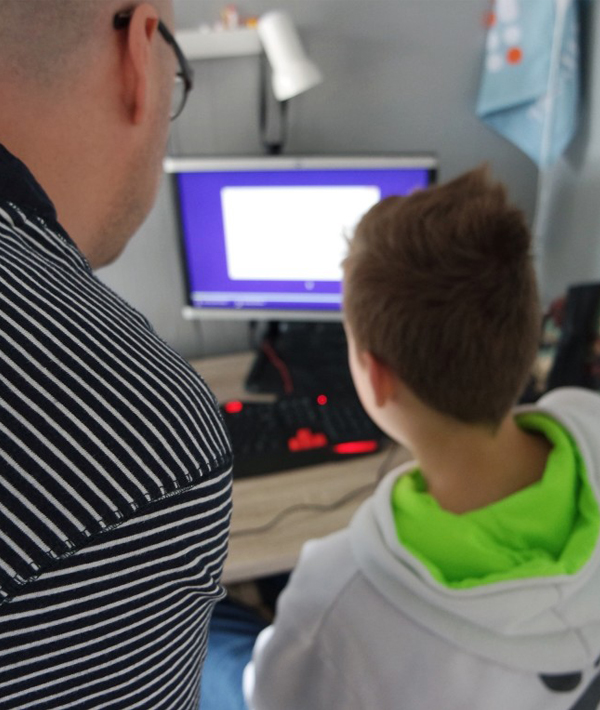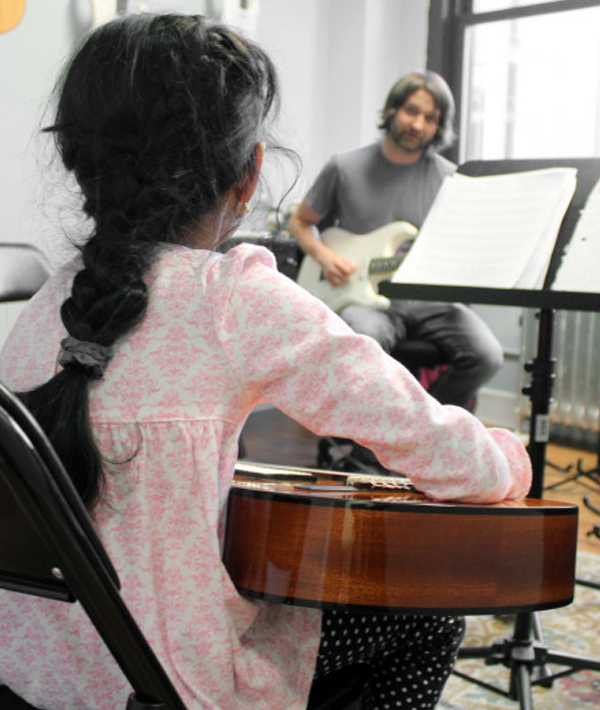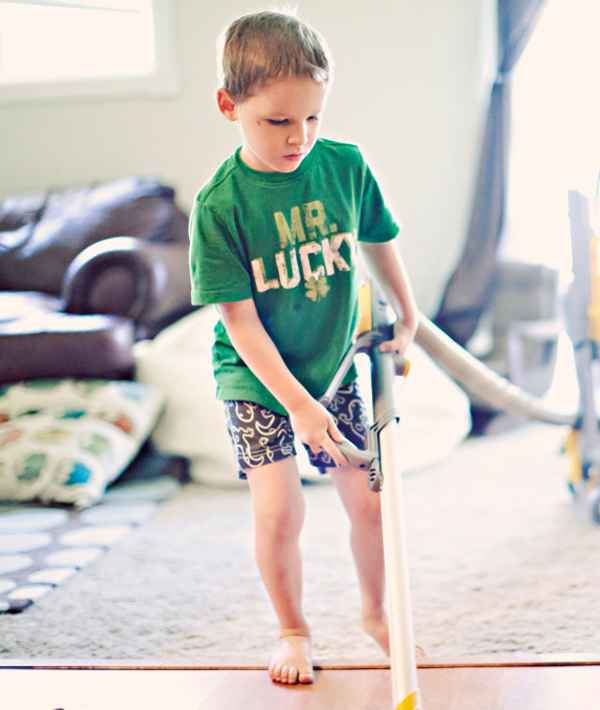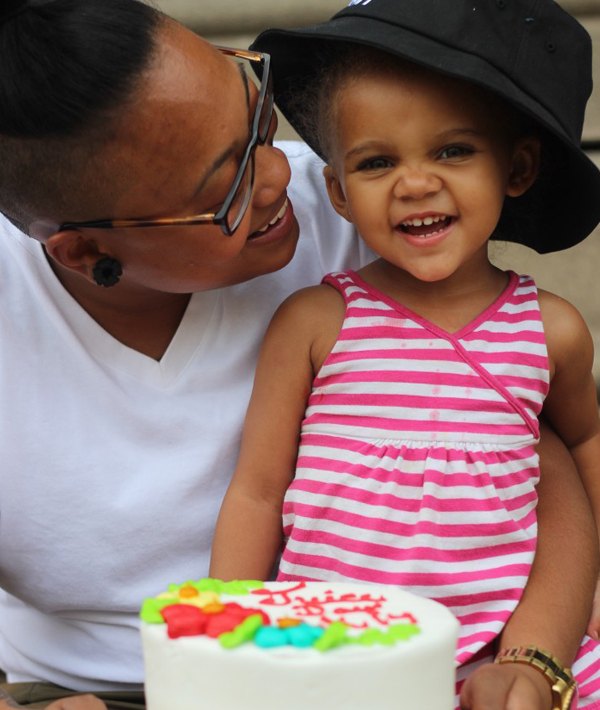Lead by example

You're your child's first and most important influence, so give them something to model their behavior on. Show them what confidence looks like by the way you act and treat others. If you have self-esteem issues that have been handed down to you, take the appropriate steps to reconcile this so that you can break the cycle.
Encourage them

Don't go overboard, but good old-fashioned encouragement goes a long way in reinforcing feelings of high self-esteem. Ask them about happy things that happened to them during their day or actions they felt good about, and give them positive feedback to reinforce these behaviors.
Dial back the criticism

This isn't to say you should avoid saying anything negative—constructive criticism is important. But take a good look at your behavior and how you interact with your child, and notice if you are being overly critical or negative. Sometimes it's OK to let the little things go.
Work alongside them

Your child needs you in this journey. So take the time to work through their problems with them so they don't feel alone. Sometimes even just your presence will give them strength— sit with them while they work on their homework, send them a few encouraging words during the day.
Go out into the world

Going places, being in different and sometimes unfamiliar situations is a great confidence booster for anyone. Take your kid out to museums, the library, the theater—it's not only fun, but will help them work on social skills and nurture interest in the world around them.
Help them find role models

Sure, you're their most important role model, but they can have more than one. It's important to see others who are making a mark on the world, overcoming obstacles and just plain being content while navigating life. It can be a celebrity, a sports figure, a historical figure or even just someone you know.
Face failure

Bad things happen, and one of the most important skills in life is knowing how to deal with them. Don't deny failure or try to bury it—talk about it and work through it together. Getting a bad grade, not making it onto a team—these are things that will always happen and just putting on a smile or passing around blame does a disservice to your child and will make them ill-equipped to deal with adversity.
Get them involved in the arts

My kids got into theater by accident (music and/or theater were required in middle school), but it stuck and ended up being the best thing that ever happened to them. Performing, being in front of people and learning to work in a group has helped them build up their confidence tremendously—and led to them discovering their passions.
Be honest

Kids are smart and intuitive, so don't try and sugarcoat everything. Use your discretion to present facts in a way that won't induce fear, but they need honest answers to their questions to find their way in the world and to develop their own internal compass for right and wrong. For example, if you're discussing our current political climate, make sure to present facts and not just opinions or hyperbole.
Work on their special talents

Everyone has a special talent, so encouraging and nurturing it in your child will be a huge confidence booster. Maybe it's their organizational skills, or their ability to whistle, or their passion for putting together an outfit in the morning. Who knows—the kid who loves helping you in the kitchen could be a future culinary star.
Give them responsibilities

Expecting them to help out with chores and contribute to the household makes kids feel a sense of responsibility and accomplishment. Yes, they'll whine and complain, but they'll also realize that they're an important part of something bigger than just themselves and their own needs. They might even thank you someday. Maybe.
RELATED: 17 Ways to Make New Friends
Encourage expression of feelings

Don't discourage anger or sadness or frustration or any emotions in your child—they're all valid responses to situations around them. If they can feel comfortable expressing their feelings—good or bad—it will help them know these feelings are normal and an important part of everyday life. In other words, if they strike out at their game, let them know that "There's no crying in baseball" is just a line from a movie.
Help them help others

Helping your child discover their altruistic side is important not just for building confidence but for being a decent human being. Get them involved in volunteering at their school or church, or maybe just helping out a friend or sibling. They'll learn about having compassion for others and feeling needed at the same time.
Don’t over-praise

It's natural to want to heap praise on your child, but experts say too much can set your child up for disappointment. They get used to hearing compliments on everything and will have a hard time distinguishing between those accomplishments that are truly worth celebrating and those that aren't.
RELATED: Mom Whose Video Went Viral Tells You How to Do It, Too
Let them take risks

It's easy to be a helicopter parent (*raising hand*), so it's important to know when to let your kid take off and fly. They'll never discover their own boundaries if you're constantly telling them something is too dangerous or too difficult. Disclaimer: This doesn't mean you should let your kid do anything that might harm them. There's a difference between allowing them to ride down the block on their bicycle and allowing them to play with a chainsaw.




